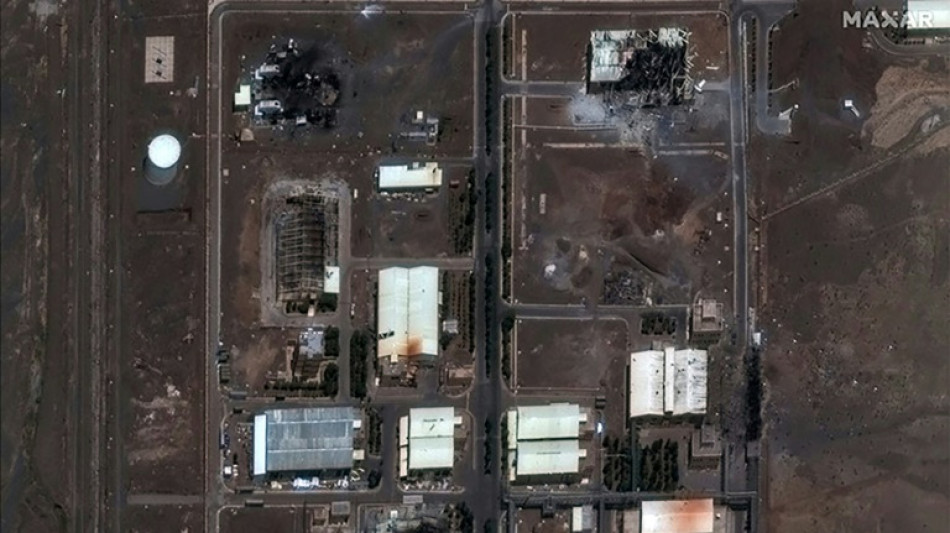
-
 UN sanctions on Iran set to return as nuclear diplomacy fades
UN sanctions on Iran set to return as nuclear diplomacy fades
-
King Charles III to visit Vatican in October
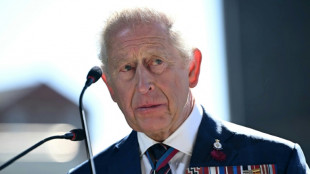
-
 Marc Marquez third on grid at Japan MotoGP as Bagnaia takes pole
Marc Marquez third on grid at Japan MotoGP as Bagnaia takes pole
-
Philippines death toll rises to 11 as storm Bualoi bears down on Vietnam
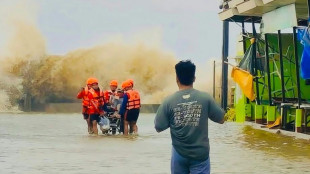
-
 Donald excited Europe handled raucous crowd well at Ryder Cup
Donald excited Europe handled raucous crowd well at Ryder Cup
-
Goals, guns and narcos: Hitmen plague Ecuador's beautiful game

-
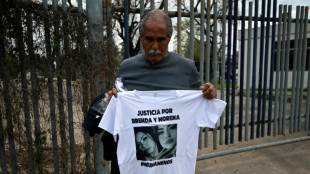 Argentine victims of live-streamed murder laid to rest on eve of protest
Argentine victims of live-streamed murder laid to rest on eve of protest
-
No USA Ryder Cup panic as fightback enters Bradley's plan

-
 USA turns to Scheffler, DeChambeau in Saturday foursomes
USA turns to Scheffler, DeChambeau in Saturday foursomes
-
Trump can't spark US comeback in visit to Ryder Cup

-
 Trump urges Microsoft to fire ex-Biden administration official
Trump urges Microsoft to fire ex-Biden administration official
-
Europe takes three-point Ryder Cup lead as US gets no Trump boost

-
 Three talking points ahead of the Women's Rugby World Cup final
Three talking points ahead of the Women's Rugby World Cup final
-
Murillo sends Marseille top in Ligue 1 with late win in Strasbourg

-
 Kimmel boycott ends as US TV companies put him back on air
Kimmel boycott ends as US TV companies put him back on air
-
Kane scores twice to reach 100 Bayern goals in record time

-
 'Almost impossible': Brazilian skater Sandro Dias makes history on mega ramp
'Almost impossible': Brazilian skater Sandro Dias makes history on mega ramp
-
Trump targets more opponents after 'dirty cop' Comey
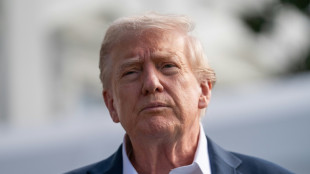
-
 Sixers' Embiid eyes consistency after injury-plagued NBA season
Sixers' Embiid eyes consistency after injury-plagued NBA season
-
More questions than answers surround Trump's TikTok deal

-
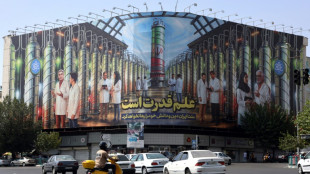 Iran sanctions look set to return as last-ditch UN push fails
Iran sanctions look set to return as last-ditch UN push fails
-
Sitting ducks: Venezuelan fishermen wary of US warships
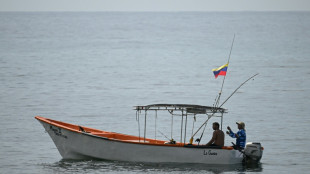
-
 Nissanka ton in vain as India edge Sri Lanka in Super Over
Nissanka ton in vain as India edge Sri Lanka in Super Over
-
An Aussie tycoon bets billions on cleaning up iron ore giant

-
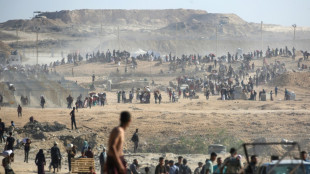 Civil defence says 50 killed in Gaza as Netanyahu vows to 'finish job' against Hamas
Civil defence says 50 killed in Gaza as Netanyahu vows to 'finish job' against Hamas
-
Canada's Corrigan leans on Olympic experience in quest for Women's Rugby World Cup gold

-
 Kolisi warns 'resilient' Boks are braced for Puma mauling
Kolisi warns 'resilient' Boks are braced for Puma mauling
-
Fearing US invasion, Venezuela to hold emergency drills

-
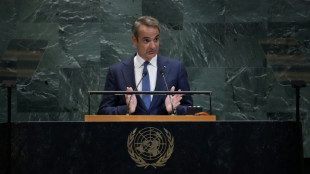 Greek PM warns Israel risks losing friends
Greek PM warns Israel risks losing friends
-
Pakistani PM appeals for India talks, hails Trump role
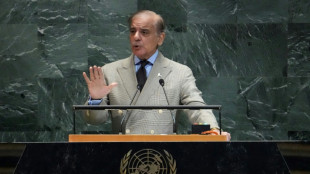
-
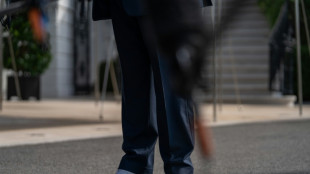 Trump aims to make America great again amid Ryder Cup woes
Trump aims to make America great again amid Ryder Cup woes
-
Trump arrives at Ryder Cup with US seeking comeback

-
 Europe grabs 3-1 lead as US seeks Trump boost at Ryder Cup
Europe grabs 3-1 lead as US seeks Trump boost at Ryder Cup
-
Lufthansa planning thousands of job cuts: sources

-
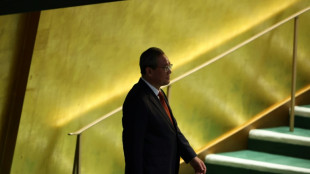 China at UN warns of return to 'Cold War mentality'
China at UN warns of return to 'Cold War mentality'
-
England great Alphonsi expects Canada to shine in Women's Rugby World Cup final

-
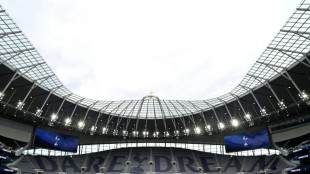 Tottenham reject interest in reported record £4.5bn sale
Tottenham reject interest in reported record £4.5bn sale
-
Man Utd boss Amorim admits uncertainty ahead of Brentford clash

-
 Zverev wins Beijing opener as Gauff launches title defence
Zverev wins Beijing opener as Gauff launches title defence
-
Barca duo Raphinha, Joan Garcia injured, out for PSG clash

-
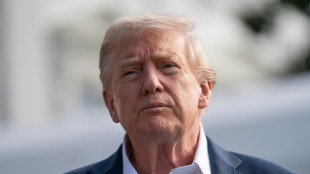 Trump hopes more opponents to be charged after 'dirty cop' Comey
Trump hopes more opponents to be charged after 'dirty cop' Comey
-
US Fed's preferred inflation gauge rises, with more cost pressures expected
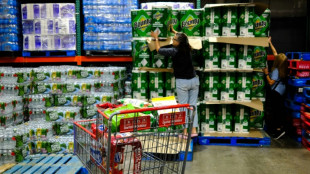
-
 Facebook, Instagram to offer paid ad-free UK subscriptions
Facebook, Instagram to offer paid ad-free UK subscriptions
-
Former UK PM Blair could lead transitional authority in Gaza: reports

-
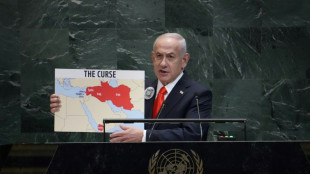 Netanyahu says Palestinian state would be 'national suicide' for Israel
Netanyahu says Palestinian state would be 'national suicide' for Israel
-
The nations and firms threatened by Trump's pharma tariffs
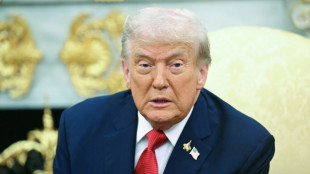
-
 Trailblazing rugby chief Griffin proud of 'incredible' strides for women's game
Trailblazing rugby chief Griffin proud of 'incredible' strides for women's game
-
Brother of Oasis stars denies rape, other charges

-
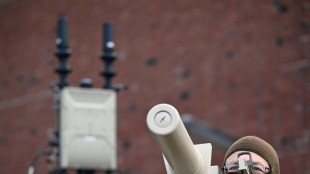 EU steps up 'drone wall' plans after Russian incursions
EU steps up 'drone wall' plans after Russian incursions
-
Kenyan jeans factory to fire workers as US deal expires
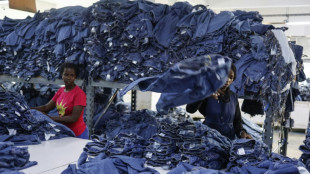

How much damage has Israel inflicted on Iran's nuclear programme?
Israel's strikes on Iran have targeted several of its nuclear facilities as it claims the country is seeking to develop nuclear weapons -- an accusation Tehran denies.
Experts told AFP that while the attacks had caused some damage to Iran's nuclear programme, they are unlikely to have delivered a fatal blow.
Here is an update on Iran's nuclear sites as of Tuesday.
- What is the extent of the damage? -
Israel's operation included strikes on Iran's underground uranium enrichment sites at Natanz and Fordow, and on its Isfahan nuclear site, the UN's International Atomic Energy Agency (IAEA) said, citing Iranian officials.
A key, above-ground component of Iran's Natanz nuclear site has been destroyed, including its power infrastructure, the IAEA reported Monday.
The UN watchdog added Tuesday that satellite images indicated possible "direct impacts" on the underground section of the plant, where thousands of centrifuges are operating to enrich uranium.
At the underground Fordow enrichment plant, Iran's second uranium enrichment facility, the IAEA said it observed "no damage" following the attacks.
At the Isfahan nuclear site, however, "four buildings were damaged" -- the central chemical laboratory, a uranium conversion plant, the Tehran reactor fuel manufacturing plant, and a metal processing facility under construction, the IAEA said.
Significant uranium stockpiles are believed to be stored around the Isfahan site.
Ali Vaez, the International Crisis Group's Iran project director, told AFP that if Iran managed to transfer significant quantities to "secret facilities," then "the game is lost for Israel".
Iran's only nuclear power plant, the Bushehr plant, was not targeted, nor was the Tehran research reactor.
- Can the programme be destroyed? -
While "Israel can damage Iran's nuclear programme... it is unlikely to be able to destroy it," Vaez said, saying that Israel did not have the massively powerful bombs needed "to destroy the fortified, bunkered facilities in Natanz and Fordow".
Destroying those would require US military assistance, added Kelsey Davenport, an expert with the Arms Control Association.
She also noted that Israel's unprecedented attack would not erase the expertise Iran had built up on nuclear weapons, despite killing nine Iranian nuclear scientists.
- What are the risks to the Iranian population? -
The IAEA has not detected any increase in radiation levels at the affected sites.
"There is very little risk that attacks on Iran's uranium enrichment facilities would result in a harmful radiation release," Davenport said.
But an attack on the Bushehr plant could "have a serious impact on health and the environment", she said.
After Israel launched its strikes, IAEA chief Rafael Grossi said that nuclear facilities "must never be attacked" and that targeting Iranian sites could have "grave consequences for the people of Iran, the region, and beyond".
- Is Iran close to developing a nuclear bomb? -
After the United States under President Donald Trump unilaterally withdrew in 2018 from a landmark deal that sought to curb Tehran's nuclear activities, Iran has gradually retreated from some of its obligations, particularly on uranium enrichment.
As of mid-May, the country had an estimated 408.6 kilogrammes (900 pounds) enriched to up to 60 percent -- just a short step from the 90 percent needed for a nuclear warhead.
Iran theoretically has enough near-weapons-grade material, if further refined, for about 10 nuclear bombs, according to the definition by the Vienna-based IAEA.
Iran is the only non-nuclear-armed state producing uranium to this level of enrichment, according to the UN nuclear watchdog.
- How much damage has Israel inflicted on Iran's nuclear programme? -
While the IAEA has been critical of Iran's lack of cooperation with the UN body, it says there are "no credible indications of an ongoing, undeclared structured nuclear programme".
Tehran has consistently denied ambitions to develop nuclear warheads.
But Davenport warned that the strikes could strengthen factions in Iran advocating for an atomic arsenal.
"Israel's strikes set Iran back technically, but politically the strikes are pushing Iran closer to nuclear weapons," she said.
M.Schneider--VB
